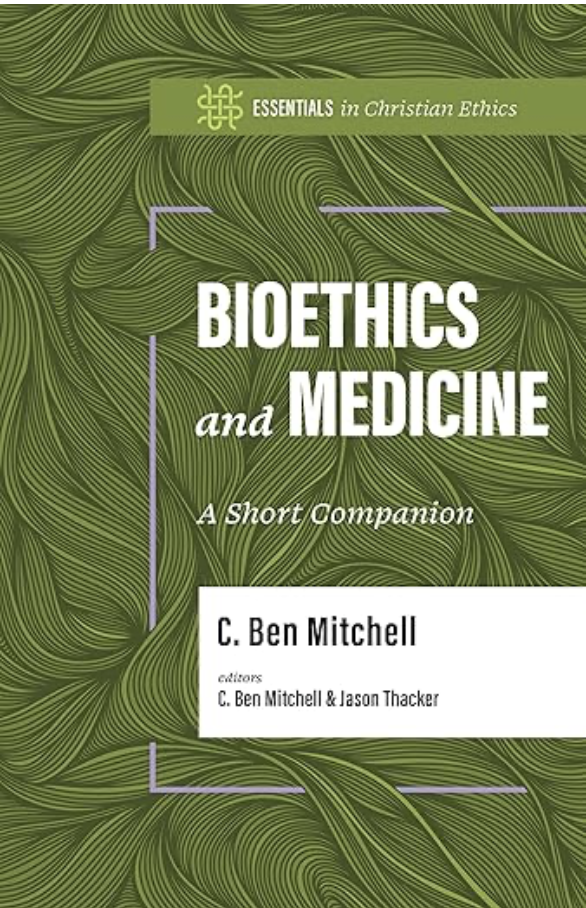A Book Review
By R. Henry Williams, M.D., M.A.
Chairman of the Board
The Tennessee Center for Bioethics & Culture
What is the essence of medical ethics as it may or should be practiced today? What is an ethical physician? What is Christian ethics? How does one’s faith impact how medicine can be practiced? These questions along with a broad look at medical ethics, from Hippocrates to today’s practicing professional, are masterfully addressed in C. Ben Mitchell’s new volume, Bioethics and Medicine – A Short Companion.
Mitchell draws on his experience as a pastor early on, who moved into his career as a bioethicist and professor, partly due to questions his parishioners were asking. Many were struggling with issues relating to the beginning and end of life. His experience taught him that the heart of ethics is less about applying principles to solve dilemmas and more about “an ancient profession with inherited moral values that guide the practice of medicine.” It is about problems to solve, but more importantly it is about valuing the individual, and the relationship between doctor and patient.
This “ancient profession” was set in place in the time of Hippocrates, yet it was in the mid-twentieth century that the discipline of bioethics was born and developed. Following the mere invention of flexible plastic tubing, technological innovations gave rise to new dilemmas to solve, and a principle-based approach to issues such as rationing kidney dialysis or informed consent was developed. There was this line of pragmatic application of principles, with that of autonomy, or the right of the patient to make his own decisions, quickly rising and seeming to even supersede beneficence and doing no harm.
Mitchell carefully shows in a concise and clear manner how another line of thinking has risen at the same time. He demonstrates how the Hippocratic oath and its Christian modifications have empowered ethical thinking since ancient times and are immensely relevant today. Significant contributions have come from Paul Ramsey’s concept of the patient as person, William F. May’s discussion of the doctor-patient covenant, the development of thinking on human dignity and the sanctity of life, virtue ethics, and the ethical statements developed by the Christian Medical and Dental Society, among many others.
These contributions are hugely impactful on how we are to think about abortion, artificial reproductive technologies, physician assisted suicide, gender identity, genetic enhancement, and how medical professionals and their patients should consider one another. They, if nothing else, provide a check on pragmatism and the thought pattern that if something can be done, it should be done. Mitchell has given us a useful guide that anyone, experienced or just learning about decisions in health care should read.


